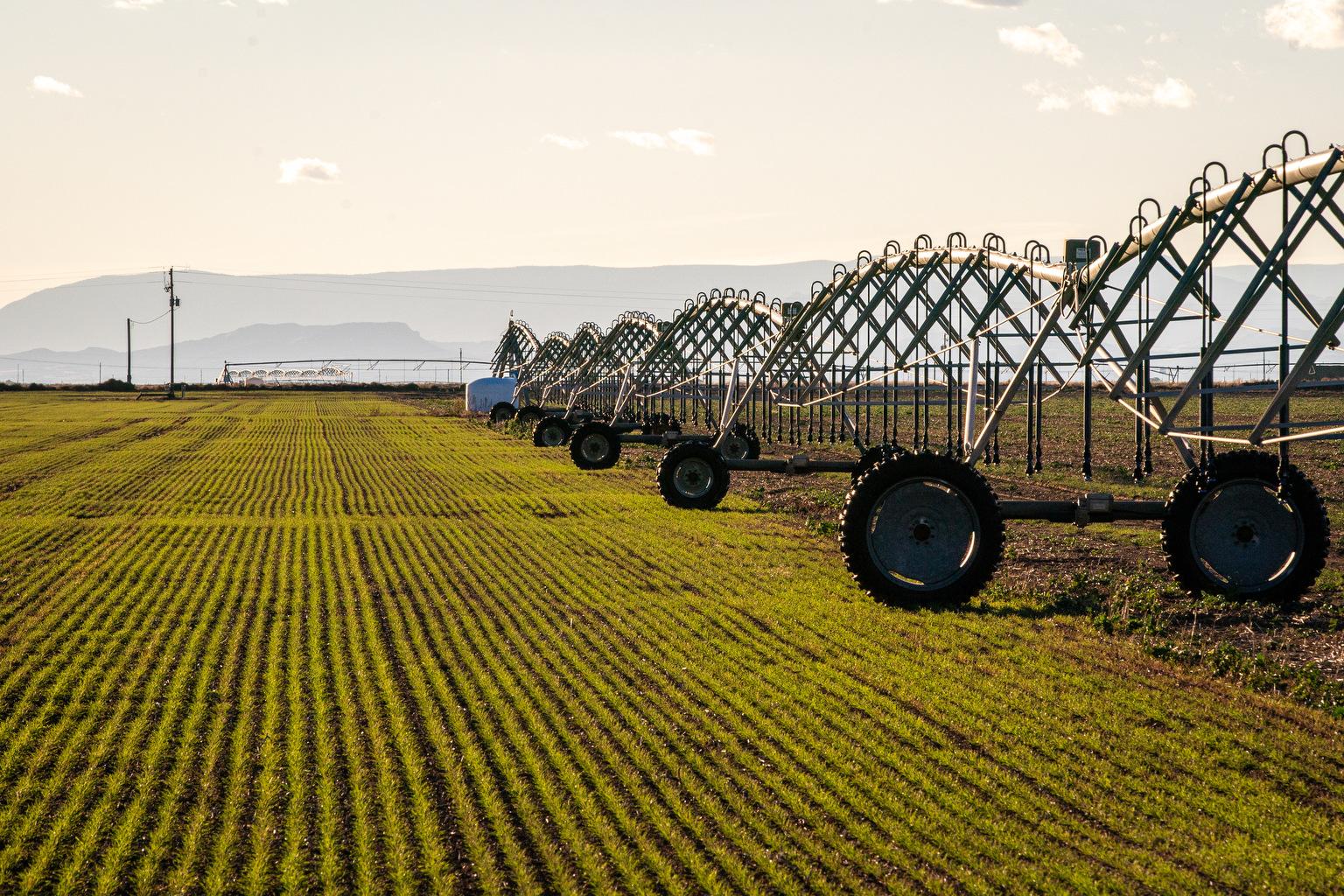
As part of a temporary stopgap government funding measure passed last week, Congress also approved a one-year extension of the Farm Bill.
While the Farm Bill is seen as-must pass legislation by all sides in Congress, Congressional leaders still struggled to reach a compromise over the last two years, leaving farmers relying on outdated provisions approved in 2018, well before the COVID pandemic, the increases in operating costs, and a number of natural disasters.
Democratic Rep. Yadira Caraveo, the only Coloradan on the House Agriculture Committee, was disappointed that the 118th Congress was not able to “craft a farm bill that meets the moment for Colorado’s farmers, rangers and agriculture industry.”
Still, Caraveo stressed what this latest continuing resolution does have: $10 billion in market relief for farmers and $21 billion in agricultural disaster aid. “I’m proud of the work we’ve done in this area and that we were able to secure key wins for farmers and ranchers across the Front Range and Northern Colorado,” she said in a statement.
Colorado’s farm and agriculture advocates see the extension as a short reprieve for their industry.
“For many farmers, the corresponding disaster package will be the difference for planting for another year, and [the Colorado Farm Bureau] was pleased to see excessive heat included as a qualifying disaster,” said Ashley House, Vice President of Strategy and Advocacy for the Colorado Farm Bureau. She also pointed out that $2 billion has been set aside for livestock producers who suffered losses in 2023-24.
As for the economic aid, House estimated that around $170 million would go to help Colorado corn, wheat and barley growers.
Rocky Mountain Farmers Union President Chad Franke said the aid is welcome.
“Between pricing, the natural disasters, and just the overall cost of everything nowadays, this past year has been really rough on most of our family farmers,” Franke explained. “I’ve got some members … they really wonder if their bankers are gonna give them a line of credit to farm again next year. That’s how serious it is. It’s not, ‘We’re not making enough money.’ It’s ‘we may be done farming.’”
Throughout 2024, farmers in Colorado and across the country were urging Congress to complete work on the bill that sets national agriculture and food policy for the next five years. The 2018 version expired in 2023 and is now starting its second one-year extension.
Talking about the lack of a bill this summer, Marc Arnusch of Arnusch Farms in Weld County said much has changed since 2018. “There's very little within my farm today that was the same as in 2018. Whether it was the cost of production, input prices, commodity prices, even the way we manage our farm has changed significantly since 2018. National ag policy needs to evolve with our evolving farms.”
While all of Colorado’s Democrats voted for the CR with the Farm Bill aid and extension, Colorado GOP Reps. Lauren Boebert and Greg Lopez were among the 34 House members who voted no, while outgoing Rep. Doug Lamborn did not vote.
“While I support doing everything we can to help farmers and aid those impacted by recent hurricanes, I cannot accept a bill that does nothing to address our $36 trillion debt,” Lopez said in a statement about his last vote of his short tenure as a congressman.
Advocates are already looking to the next Congress with the hopes that a full five-year Farm Bill can pass before the end of 2025.
Franke said it’s been “really disappointing that we’ve gone two years now with nothing but extensions on the Farm Bill.”
“It doesn’t seem like [Congress has] been taking their job seriously,” Franke said. He added it’s frustrating for those in agriculture. There were new programs debuted in the 2018 farm bill that need fixes and baseline pricing for farmers also need to be updated. “It’s not an adequate safety net for those who produce our food.”
Still, he acknowledged the challenges in coming up with a compromise measure. It’s not just farm policy, and the regional differences, that make the bill tricky to negotiate; it also covers food policy, research, conservation and more.
The Colorado Farm Bureau’s House said one of the group’s goals is to get greater attention “to our specialty crop growers and their place in future economic aid packages” so they remain in business.
More importantly, House hopes the 119th Congress is able to provide “the modernized, five-year farm bill we truly need.”
Franke also hopes Congress gets a quick start on the issue in the new session to “get us a good farm bill.”
According to a 2024 Feeding the Economy report, Colorado’s agriculture industry generated $178 billion in economic output and supported over 925,000 jobs.
While the House Agriculture Committee passed its version of the Farm Bill out of committee, largely along party lines, the bill was never brought to the floor for a vote, in a tacit acknowledgment that it didn’t have the votes to pass. Meanwhile, the Senate was not able to get a bill out of committee, let alone bring one to the floor.
For the first time, the Farm Bill was expected to top more than a trillion dollars. Among the major sticking points was how to pay for it and what changes it should make to SNAP, formerly known as food stamps.









